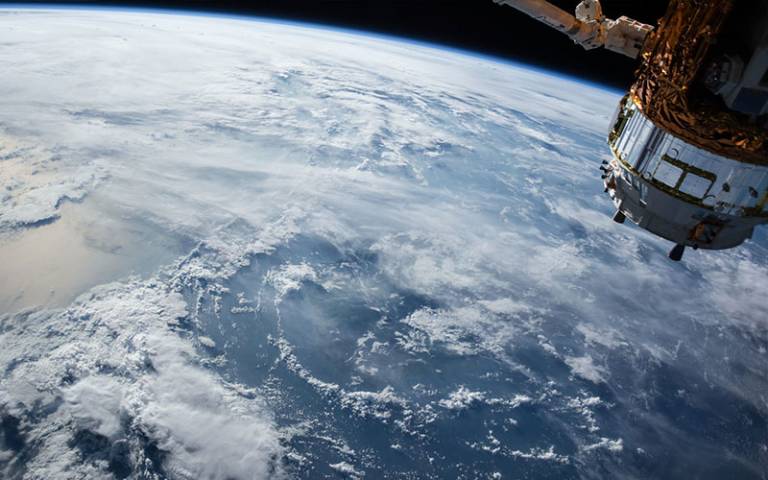Using AI and satellites to detect bowel cancer
UCL scientists are using Artificial Intelligence (AI) and space satellites to fight the battle with cancer on Earth.

Bowel cancer is the fourth most common cancer in the UK and it killed over 16,000 people in 2016, making it the UK’s second most deadly cancer. If it is detected early, 90% survive so finding new ways of identifying and diagnosing cancerous growths sooner are vital.
Bowel cancer is normally detected by a doctor inserting a camera into the bowel (colonoscopy). This method can be challenging for diagnosis, as what doctors can see is limited and polyps, small growths that can contain cancer cells, can be missed.
UCL scientists at the Wellcome / EPSRC Centre for Interventional and Surgical Sciences (WEISS) have developed a way to make colonoscopies more accurate with a new method that can be used anywhere in the world, including remote, rural areas.
Using Artificial Intelligence (AI) to run and analyse the live video captured from a colonoscopy, allows doctors to more readily identify and characterise polyps, leading to early treatment and saved lives.
As the information generated is so large, it cannot be transmitted using the internet so it uses satellites to relay the data, allowing doctors to see it in real-time. It uses the same technology essential for delivering data quickly between Earth and spacecraft.
The use of satellites means that the technique can be used anywhere, including places that have limited, or no internet or mobile access, which could revolutionise cancer detection in more rural areas.
Links
- Scientists use space tech to detect bowel cancer (video on Reuters news)
- Using space technology to fight bowel cancer (UCL News)
- Odin Vision (the company created to develop the technology)
- UCL Computer Science
- Wellcome / EPSRC Centre for Interventional and Surgical Sciences
- UCL Engineering
- UCL Medical Sciences
- UCL Innovation & Enterprise
Image
- Credit: Free-Photos, Source: Pixabay
 Close
Close

